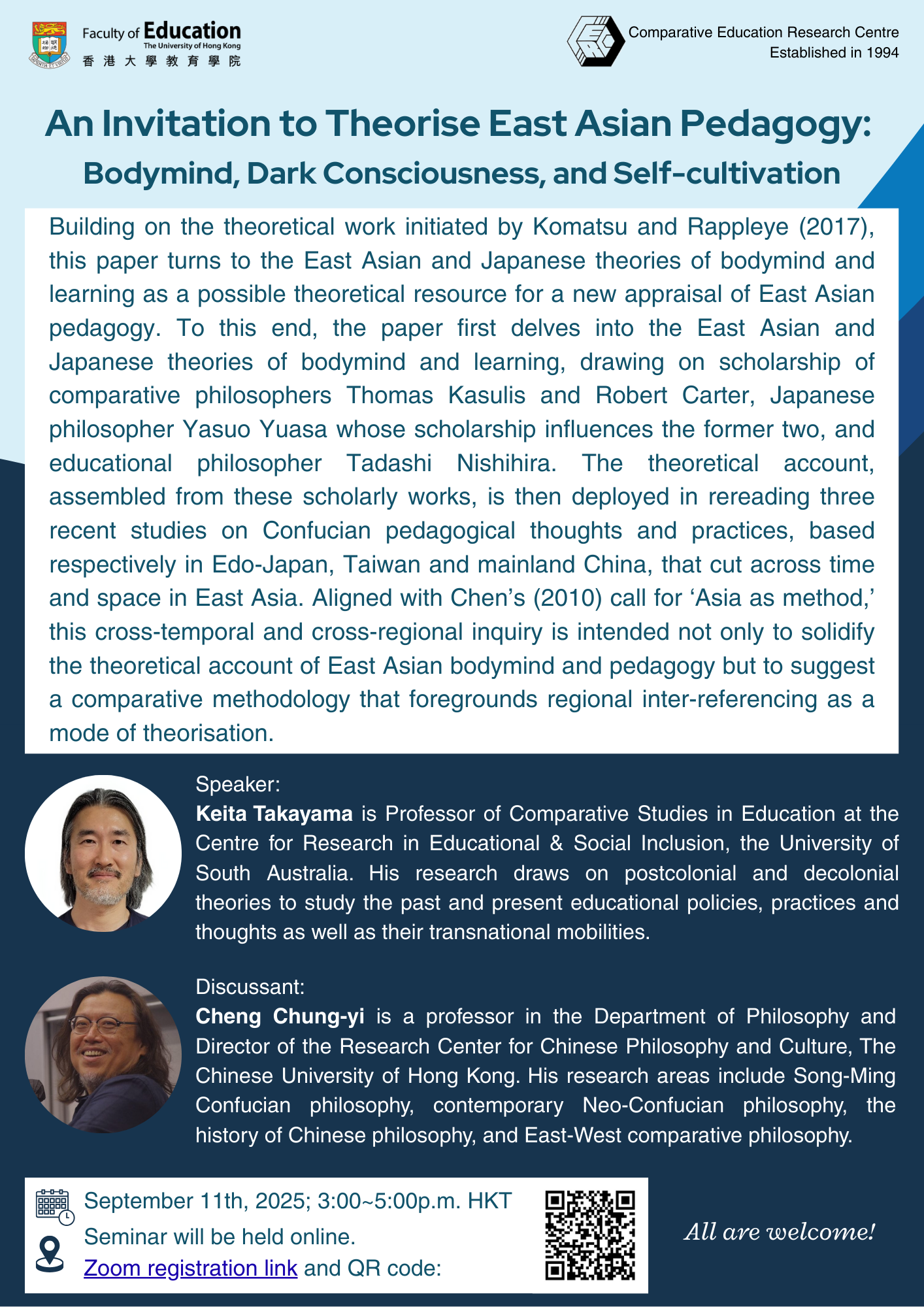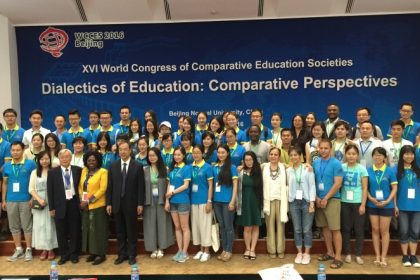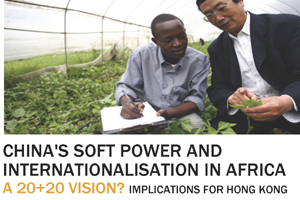On 11th September, CERC was honoured to have Prof. Keita Takayama to deliver a talk titled “An Invitation to Theorise East Asian Pedagogy: Bodymind, Dark Consciousness, and Self-cultivation” with commentary from Prof. Chung-yi Cheng. The talk attracted a total of 115 participants (both in-person and online), attending from China, Korea, Japan, Australia, etc.
In this seminar, Prof. Takayama discussed the necessity of theorising East Asian pedagogy in its own terms. Int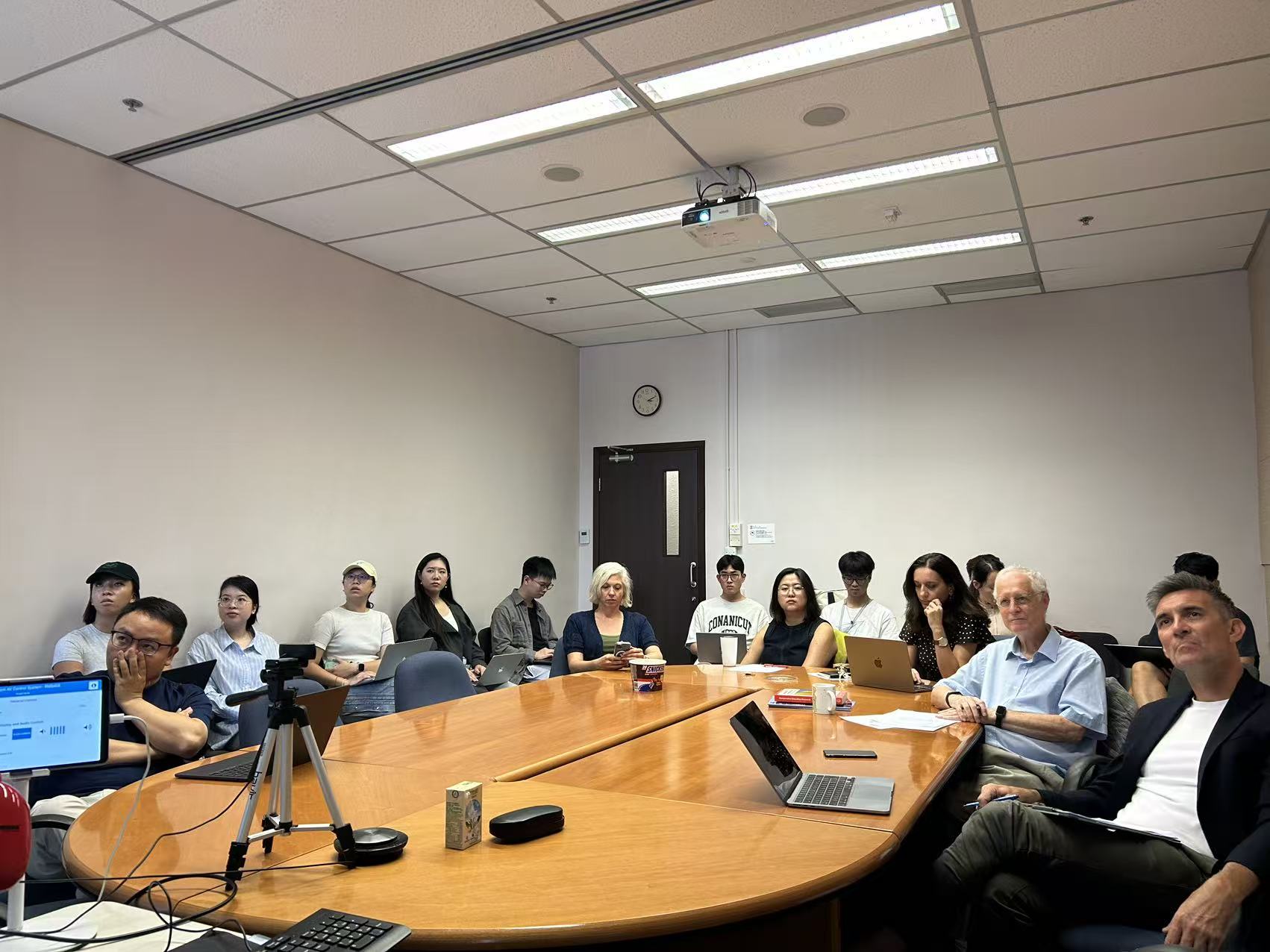 egrating approaches of “reverse deficit methodology” (Sonoda, 1991) and “Asia as method” (Chen, 2010), Prof. Takayama attempted to test emic concepts and theories developed mainly from Japanese Philosophy in East Asian educational settings. Building on the philosophical discussions of Yuasa, Kasulis, Nishihira and others on “bodymind”, Prof. Takayama argued that in eastern traditions and philosophies, knowledge is often depicted as obtained through repetitive bodily exercises or “dark consciousness”, in contrast to rational cognitive procedure or “bright consciousness”. Prof. Takayama then deployed this theory in analyzing the results of qualitative research by Weili Zhao on Chinese mathmatics education. Prof. Takayama contended that the “bodymind” theory is useful in taking account of the pedagogy adopted by the Chinese teachers in mathmatics classroom and argued that in adopting this theoretical framework, researches like that of Zhao’s can be taken one step further towards theoresation of East Asian pedagogy.
egrating approaches of “reverse deficit methodology” (Sonoda, 1991) and “Asia as method” (Chen, 2010), Prof. Takayama attempted to test emic concepts and theories developed mainly from Japanese Philosophy in East Asian educational settings. Building on the philosophical discussions of Yuasa, Kasulis, Nishihira and others on “bodymind”, Prof. Takayama argued that in eastern traditions and philosophies, knowledge is often depicted as obtained through repetitive bodily exercises or “dark consciousness”, in contrast to rational cognitive procedure or “bright consciousness”. Prof. Takayama then deployed this theory in analyzing the results of qualitative research by Weili Zhao on Chinese mathmatics education. Prof. Takayama contended that the “bodymind” theory is useful in taking account of the pedagogy adopted by the Chinese teachers in mathmatics classroom and argued that in adopting this theoretical framework, researches like that of Zhao’s can be taken one step further towards theoresation of East Asian pedagogy.
Prof. Chung-yi Cheng, responded to Prof. Takayama’s talk in a detailed and intensive fashion. Besides echoing the talk with his own examples and teaching experiences, Prof. Cheng also proposed several critical questions towards the “bodymind/dark consciousness” theory. One major point is his concern for the “one-sidedness” of this theory, because from his expertise in Confucian (and Chinese) philsophy, Prof. Cheng contended that in those philosophical traditions, the cultivaiton of bodymind (outside-in) and the cultivation of heart-mind (inside-out) are, despite emphasized in different learning stages, equally important. Hence, Prof. Cheng offered a constructive sug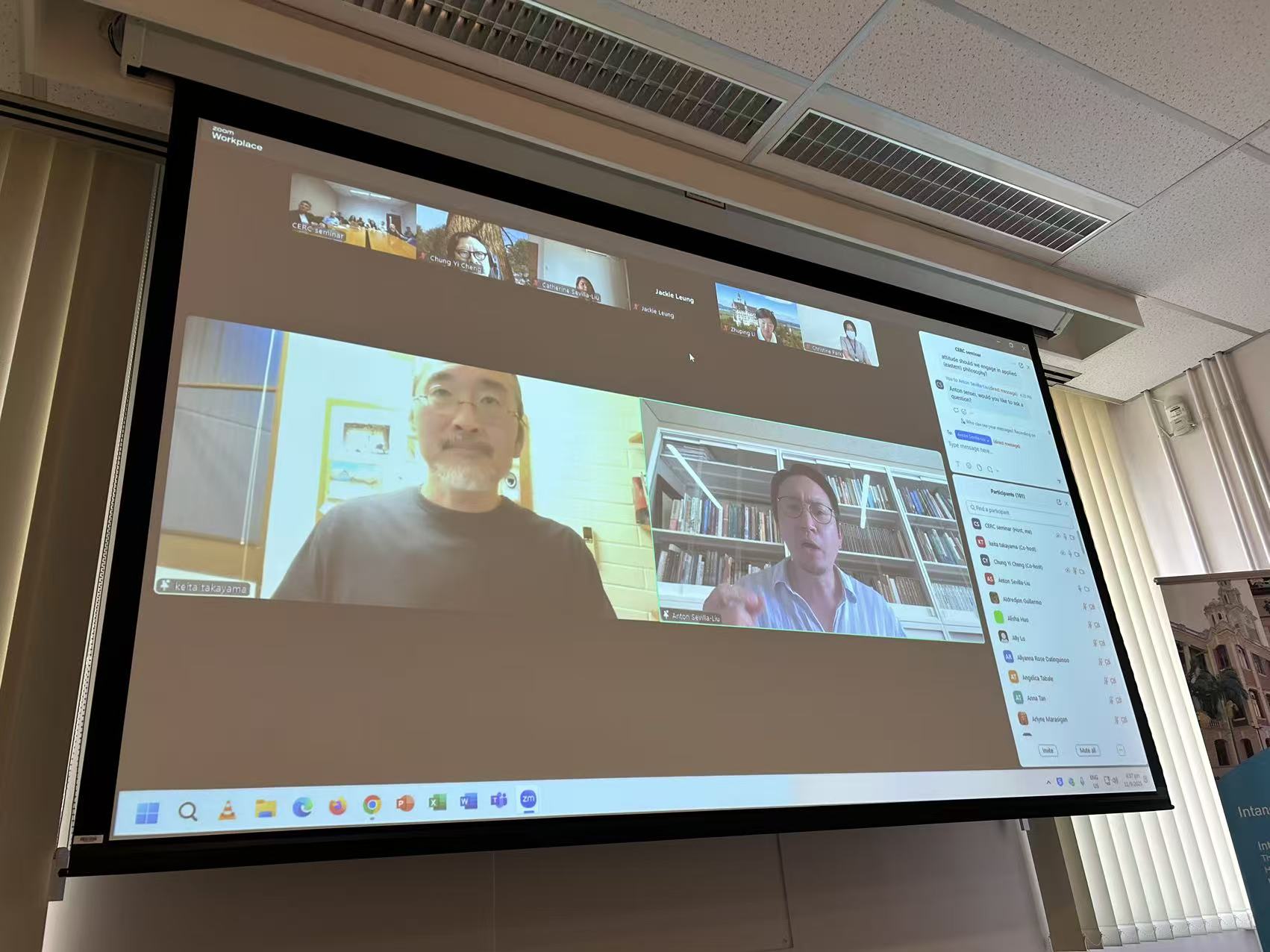 gestion on how to make the theorisation of East Asian pedagogy more philosophically well-grounded, that is, to depict “bright consciousness” and “dark consciousness” as mutually transforming yin and yang so that the dynamic of the two in learning process can be taken account of.
gestion on how to make the theorisation of East Asian pedagogy more philosophically well-grounded, that is, to depict “bright consciousness” and “dark consciousness” as mutually transforming yin and yang so that the dynamic of the two in learning process can be taken account of.
The talk and the commentary from Prof. Takayama and Prof. Cheng sparked warm and enthusiastic responses in audience. Prof. Ka Ya Lee and Prof. Anton Sevilla-Liu (both former speakers of CERC seminars) elaborated on the points Prof. Cheng raised and exchanged ideas with the speaker. Prof. Jeremy Rappleye sought opinions from Prof. Cheng on the interdisciplinary collaboration between philosophy and education departments. Prof. Cheng responded with honest concern for institutional difficulties but also with insightful and concrete suggestions on how genuine “interdisciplinarity” can be established. Prof. Rappleye envisioned that CERC seminars will continue to serve as bridges for insights and knowledge from different regions and disciplines.
This seminar offers deep theoretical foundation and practical suggestions especially for educational researchers and practitioners in East Asia who have long struggled with the situation that East Asian education and pedagogy are depicted as “deficit”. CERC hopes that this seminar will inspire and encourage East Asian researchers and educators to theorise their practices using their own “emic” concepts and exchange insights with each other on those concepts so that more fruitful intra-Asia conversations will be established.


